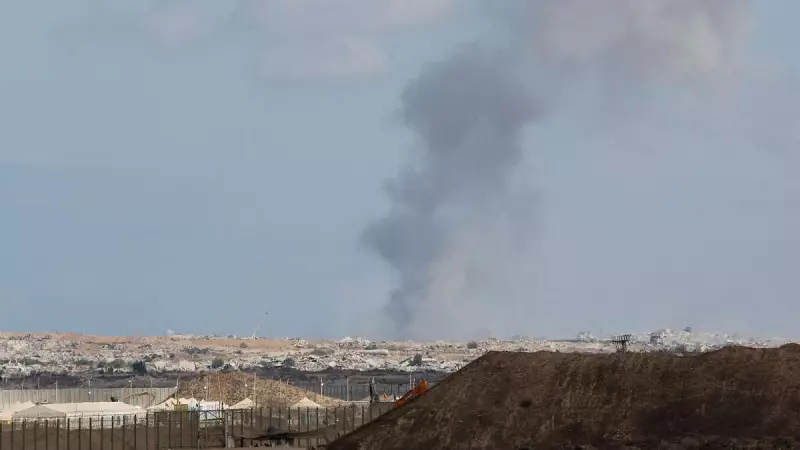
In a dramatic escalation of violence, Israeli forces have unleashed a devastating wave of airstrikes across Gaza, resulting in the deaths of more than 100 Palestinians. This massive military operation comes as a direct response to the tragic death of an Israeli soldier during operations in the southern Gaza city of Khan Younis.
Ceasefire Paradox: Strikes Continue Amid Peace Efforts
Despite the intense bombardment that has rocked the besieged territory, Israeli officials maintain they remain committed to the ceasefire process. This creates a complex scenario where military operations and diplomatic efforts appear to be running simultaneously.
The recent violence represents one of the deadliest episodes in the ongoing conflict, with Palestinian health officials reporting widespread destruction and numerous casualties. Emergency services are struggling to cope with the scale of the devastation.
Soldier's Death Triggers Massive Retaliation
The catalyst for this escalation was the death of an IDF soldier during combat operations in Khan Younis. The Israeli military responded with overwhelming force, targeting what they described as Hamas infrastructure and operatives throughout the coastal enclave.
Witnesses describe scenes of chaos and destruction as explosions lit up the night sky across multiple Gaza neighborhoods. The sound of airstrikes and ambulance sirens created a terrifying symphony of violence that lasted for hours.
International Community Watches with Growing Concern
As the death toll climbs, international observers and diplomatic channels are working frantically to prevent further escalation. The United Nations and various world powers have expressed deep concern about the deteriorating humanitarian situation in Gaza.
The timing of these strikes is particularly sensitive, coming amid delicate negotiations aimed at achieving a lasting ceasefire. Both sides appear to be walking a tightrope between military objectives and political solutions.
Medical facilities in Gaza are reportedly overwhelmed with casualties, with doctors working around the clock to treat the wounded. The already fragile healthcare system in the territory is facing unprecedented strain.
What Comes Next?
As the dust settles from this latest round of violence, several critical questions remain unanswered:
- How will this escalation impact the ongoing ceasefire negotiations?
- Can diplomatic efforts withstand the pressure of renewed military action?
- What does this mean for the civilian population caught in the crossfire?
The world watches anxiously as this volatile situation continues to unfold, hoping for a breakthrough that could bring lasting peace to the region.





